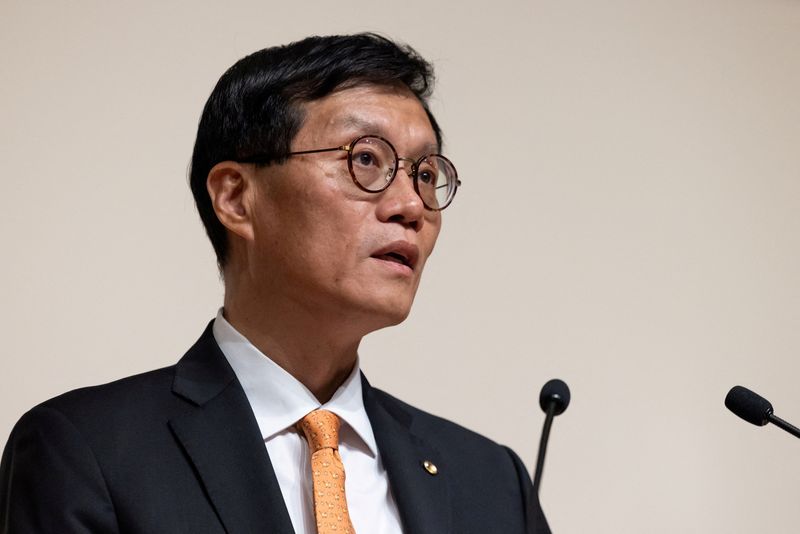SEOUL (Reuters) - South Korea's central bank said on Thursday it would change its aggressive policy tightening stance when it becomes more certain that inflation and economic growth are slowing, without giving any hint on the likely timing.
The Bank of Korea said in a policy report to parliament that while the downward risk to economic growth is increasing, it believes its policy focus should be on containing inflation as long as price pressures remain high.
It said it would "respond in an appropriate manner" when a slowing trend in inflation becomes more pronounced, inflation expectation weakens and the downward pressure on economic growth becomes stronger.
The Bank of Korea, which in August 2021 became one of the first major central banks to begin raising interest rates, has lifted its benchmark rate by a total of 275 basis points from a record low of 0.5%.

Governor Rhee Chang-yong said at the Reuters NEXT conference last week that he hopes the peak of its target rate in this cycle will be around 3.5%, compared with 3.25% at present, indicating the central bank's tightening cycle was near its end.
The policy report was meant to summarise the central bank's position made public in recent months. It has no policy meeting this month and its next meeting to review interest rates is set for Jan. 13, 2023.